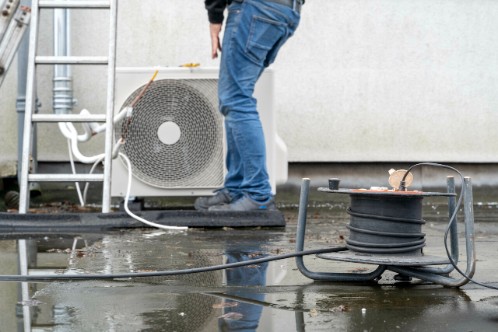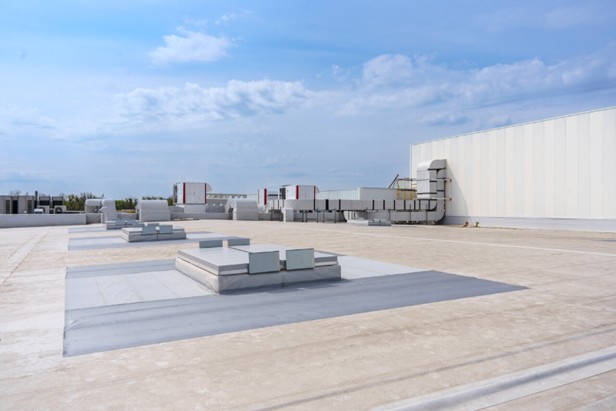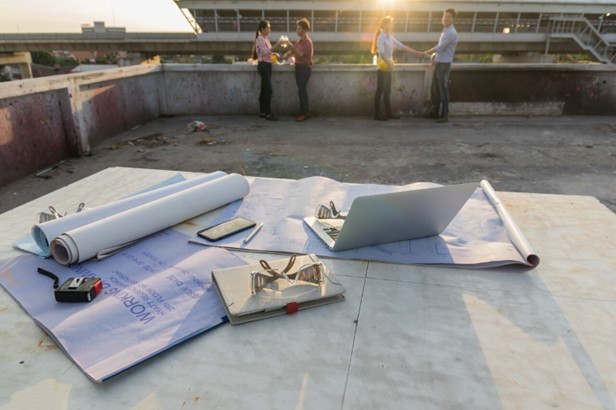The Importance of Annual Roof Inspections for Commercial Buildings
Introduction to Roof Inspections
Commercial flat roofs play a vital role in protecting buildings from various weather conditions and ensuring the well-being of their occupants. Despite their importance, these roofs often go unnoticed until a significant problem arises. To keep your roof in optimal condition and avoid unexpected issues, regular inspections are essential. These assessments provide an opportunity to catch minor concerns before they develop into major headaches, helping to maintain both the functionality and efficiency of your roof.
A well-maintained roof can significantly impact your building's overall energy efficiency. Over time, even minor damages can lead to energy loss, driving up heating and cooling costs. Annual inspections help spot these issues early, allowing for timely repairs that can save you money on energy bills in the long run. Furthermore, consistent care can prevent small problems from escalating into larger, more costly repairs or even complete roof replacements.
During an inspection, professionals will assess various aspects of your roof, including its structure, materials, and any potential wear and tear. This comprehensive review ensures that all elements of the roof are performing as they should. Additionally, regular inspections provide valuable documentation of your roof’s condition, which can be beneficial for insurance claims or when selling the property.
Choosing to invest in regular roof inspections is a proactive measure that pays off in multiple ways. It not only preserves the integrity of your building but also ensures the safety and comfort of its occupants. By staying ahead of potential issues and maintaining your roof’s health, you can avoid unexpected disruptions and costly repairs. Regular roof inspections are a smart strategy for any commercial property owner committed to the longevity and efficiency of their building.
Identifying Potential Issues Early

Regular roof inspections are essential for spotting potential issues before they escalate. Leaks, for instance, may start as minor annoyances but can quickly lead to water damage, mold growth, and even structural weaknesses. Detecting leaks early through professional assessments can prevent these larger problems, saving both time and money. Additionally, minor structural impairments, if caught early, can be addressed before they compromise the roof's integrity.
A common issue that inspections can reveal is wear and tear from weather exposure. Over time, materials like shingles or membranes can deteriorate, becoming less effective at protecting the building. Early identification of these signs allows for timely repairs or replacements, maintaining the roof's protective capabilities. Furthermore, inspections can uncover blocked drainage systems, which, if left untreated, can cause water accumulation and subsequent damage to the roof and the building's interior.
Regular inspections also provide an opportunity to check for any damage caused by previous repairs or installations. Sometimes, poorly executed repairs can create new problems or fail to address the initial issue adequately. Professional inspectors can identify these inadequacies and recommend appropriate solutions to ensure the roof remains in good condition.
Engaging a qualified roofing professional to conduct these assessments is crucial. They have the expertise to identify even the subtlest signs of trouble, such as slight sagging, tiny cracks, or early signs of material fatigue. Their trained eyes can detect what an untrained observer might miss, ensuring that all potential issues are addressed promptly.
By incorporating routine roof inspections into your maintenance plan, you can stay ahead of any problems and ensure that your roof continues to perform its vital role effectively.
Ensuring Safety and Compliance
Keeping your commercial roof in top shape is more than just a maintenance task; it's a critical component of ensuring safety and compliance with building codes. Regular inspections play a pivotal role in identifying potential hazards that could compromise the integrity of the structure or the safety of its occupants. For example, issues like loose materials, standing water, or structural weaknesses can pose significant risks if not promptly addressed.
In addition to spotting safety concerns, inspections help ensure that your roof meets current building regulations. Compliance with these codes not only avoids costly fines but also minimizes liability risks. Certified inspectors are well-versed in these requirements and can provide invaluable insights into any updates or changes that might affect your property.
By keeping up with regular inspections, you also create a thorough documentation trail. This can be particularly useful if your building undergoes audits or when dealing with insurance claims. Having up-to-date records of your roof's condition, along with any repairs or maintenance performed, can simplify the claims process and provide proof of due diligence in maintaining a safe environment.
Incorporating professional assessments into your routine maintenance plan is essential for addressing both immediate safety concerns and long-term compliance requirements. Trusting experts who are familiar with the intricacies of commercial roofing ensures that any issues are accurately identified and properly resolved. This proactive approach fosters a safer environment for everyone who enters the building while protecting your investment in the property.
Extending Roof Lifespan

Regular inspections can significantly prolong the lifespan of a commercial flat roof. By addressing minor issues promptly, property owners can maintain the roof’s durability and performance. Routine cleaning is essential to remove debris that could obstruct drainage systems, leading to water buildup and potential damage. Ensuring proper drainage not only prevents water accumulation but also reduces the risk of leaks and structural impairments.
In addition to cleaning, scheduling periodic maintenance checks between annual inspections helps identify early signs of wear and tear that may otherwise go unnoticed. These checks can uncover minor issues such as small cracks, material fatigue, or slight sagging, all of which can be repaired before escalating into major problems. Regular upkeep enhances the roof’s resistance to harsh weather conditions, including heavy rain, strong winds, and extreme temperatures, ultimately leading to a longer-lasting roof.
Another critical aspect of extending roof lifespan is ensuring that repairs are performed correctly and using high-quality materials. Poorly executed repairs can cause more harm than good, failing to address the underlying issue and potentially creating new problems. Engaging a qualified roofing professional with a strong track record ensures that any necessary repairs or maintenance tasks are completed to a high standard.
Proactive measures, such as applying protective coatings, can also enhance the roof's longevity. These coatings add an extra layer of protection against UV rays, moisture, and temperature fluctuations, further safeguarding the roof’s materials and structure. Implementing these practices as part of a comprehensive maintenance plan will not only extend the life of your roof but also improve its overall energy efficiency, reducing costs associated with heating and cooling. By staying ahead of potential issues and maintaining your roof’s health, you can avoid unexpected disruptions and ensure the longevity of your investment.
Choosing a Reliable Roofing Company
When selecting a roofing contractor, prioritize experience and industry-specific certifications. A company with a solid history in commercial roofing will have the expertise to handle the unique challenges these roofs present. Certifications from recognized industry bodies indicate a commitment to quality and adherence to best practices.
Reputation is another crucial factor. Look for contractors with positive reviews and testimonials from previous clients. These can provide insight into the company’s reliability and quality of work. Additionally, ask for recommendations from other property managers or industry peers to find contractors with a proven track record.
Customer service should not be overlooked. A reliable contractor will communicate clearly, provide detailed estimates, and be responsive to your questions and concerns. This level of professionalism can make the entire process smoother and more transparent.
It's also beneficial to choose a contractor who offers comprehensive services, from inspections and maintenance to repairs and upgrades. This ensures that all aspects of your roof's health are managed by a single, knowledgeable provider, reducing the risk of overlooked issues or incompatible repairs.
Lastly, consider the contractor’s approach to safety and compliance. They should be well-versed in local building codes and regulations to ensure that any work performed meets all necessary standards. A focus on safety not only protects the workers but also the building’s occupants and your investment. By carefully evaluating these factors, you can select a roofing company that will support the long-term health and performance of your commercial roof.
Conclusion and Action Steps

Annual roof inspections provide a proactive approach to maintaining commercial properties. By catching issues early, you can avoid costly repairs and extend the lifespan of your roof. Ensuring safety and compliance with building codes not only protects the building’s occupants but also minimizes liability risks. Selecting a reliable roofing contractor who offers comprehensive services ensures that your roof is maintained by experienced professionals, reducing the chances of overlooked issues.
To get started, schedule your next roof inspection with a trusted professional. Keep a detailed record of all inspections, repairs, and maintenance tasks. This documentation will be invaluable for future reference, insurance claims, or audits. Implementing a routine maintenance plan that includes both annual inspections and periodic checks will help you stay ahead of potential problems. Investing in regular roof care is a strategic move that enhances the durability, efficiency, and safety of your commercial property.
Posts by Tag
Recent Posts
Popular Posts
Selecting the appropriate roofing system is...
The connection between the quality of our...
Recent Posts
When faced with Emergency Commercial Roof...
As hurricane season approaches, property managers...







